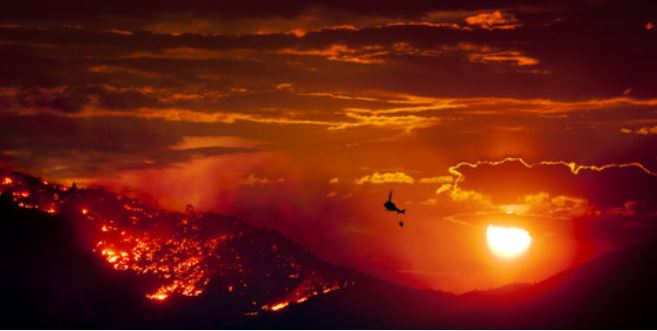Top 15 devastating death-filled natural disasters
Top 15 devastating death-filled natural disasters
From the Black Death of Europe to earthquakes extending hundreds of miles under some unlucky country, we count 15 devastating, death-filled disasters that Earth has ever unleashed.
Bangladesh cyclone
This is among the deadliest cyclones on record and one of the deadliest natural disasters, one that occurred on the 29th of April, 1991, at the Chittagong district of Bangladesh. It was a storm that forced a 6-meter storm surge over the inland, carving a path through the land and everyone who lived there for 7 entire days.
Most deaths were caused by drowning, mostly infants and elderly – the total body count exceeding 180,000 people, and an estimated damage cost of 1. 5 billion dollars14.
Black Plague
Also known as the bubonic plague or “BlackDeath”, this biological epidemic struck between the years 1347 and 1350, wiping out a third of the entire population of Europe. It’s believed today that the plague itself came from a disease born from bacteria in rats, ones with poor hygiene or tag-along fleas.
Not only did it wipe out a good chunk of Europe, but it also found its way to Asia and North Africa, killing all in its wake13.
Great Kanto earthquake
This one struck the Japanese main island of Honshu on September 1, 1923, and it lasted just over four minutes. This natural disaster had a magnitude of 7. 9, and at the time it was the most powerful earthquake ever to hit Japan, devastating Tokyo, Yokohama, and a good deal of other places in the Kanto region. The total deaths were over 140,000, the most ever seen dead in prewar Japan, and back then there was even talk to move the capital city elsewhere.
Haiti earthquake
Another one of the natural disasters struck with a magnitude 7 earthquake that struck very close to Haiti’s capital, Port-au-Prince on the 12th of January, 2010. Over 160,000 people died, with poor low-quality housing conditions to blame for quite a few unnecessary deaths. Relief came from many, many countries with rescue and medical teams, engineer and support personnel, but an excess of dead bodies with nowhere to bury them and mass looting both became a huge problem.
Typhoon Nina
One of the more deadly natural disasters was the tropical cyclones, short-lived but intense landing in mainland China and Taiwan. Luckily, much of the typhoon lost its strength over Taiwan’s central mountain range, but then it hit several dams and collapsed them, destroying parts of the Henan Province city with floods. Approximately 229,000 people died from both the typhoon and accidental floods.
Indian Ocean tsunami
A lot of us should remember this one from 2004, one of the deadly natural disasters in the shape of an earthquake and tsunami that hit over fourteen countries with no warning. It was around magnitude 9. 2 and caused waves to hit the mainland exceeding 30 metres in height with Indonesia was the hardest-hit country, followed by Sri Lanka, India, and Thailand. It killed more than 230,000 people and prompted a worldwide humanitarian response with 14 billion dollars in aid to the homeless and injured.
Antioch earthquake
This one took place a long time ago, 115 AD, with an estimated magnitude of 7. 5. It totaled the area around Antioch with a large loss of life and land, which then triggered a tsunami which badly damaged their local harbor. It almost took the life of Roman Emperor Trajan along with his successor Harian, but both made it out with only slight injuries and instead returned to rebuild their city
Antioch earthquake
A follow-up to the previous set 400 years later, hitting Syria and the Byzantine Empire in late May, year 526. Immediately after the earthquake, fires tore through buildings and homes left standing with wind worsening the blaze • The death toll exceeded 250,000 with many aftershocks for the following 18 months 7.
North Korea famine and floods
3 years of political turmoil and natural disasters just before the year 2000. With industrial decline came a lack of food production, and with floods destroying almost half of farm-land, most succumbed to immediate starvation in rural areas• By the end of this grisly period, over 3 million North Korean citizens had died.
Haiyuan earthquake
A big one that hit smack bang in the centre of a province of China on December 16th, 1920, reportedly around 8 on the Richter scale. 73,000 people died in Haiyuan County with landslides burying villages and houses collapsing in major cities across 7 different regions. Total casualties exceeded 200,000 but may have hit 235,000 according to the International Institute of Seismology and Earthquake Engineering.
Calcutta cyclone
This one happened on October 7th, 1737in the Indian city of Calcutta, today known as Kolkata. For a long time we believed this one had been caused by earthquakes, but we’re now more positive than it was a tropical cyclone based on official reports from the era, describing storms and flood destroying thatched houses and wasting locals in their thousands• At the time, the population of Calcutta barely exceeded 20,000 so the official death toll of 300,000 for this natural disaster is generally thought to include the similar1737 super cyclone in the West Bengal region.
Indian Famine
The mid-1700s in India, a famine that gripped one-third of the population of India. It was due to a shortfall of crops in the aftermath of a severe drought, which transformed open fields back into the wide jungle, further pushing the food shortage• Over ten million people died because of this, and it lasted just under five years before any recovery could be made.
Shaanxi earthquake
One of the deadliest earthquakes in history, a magnitude 8 that killed almost a million people. It happened on the morning of January 23rd, 1556, China, the Ming Dynasty with over 90 countries getting affected. It opened with an 840 kilometer-wide area obliterated in seconds, with countries losing as much as 60 percent of their population, mainly due to them living in artificial caves under cliffs, most of which collapsed on their heads.
Yellow River Flood
Known as the second most lethal flood in the history of Earth, a river prone to flooding due to its elevated nature in China- farmers attempted to build dikes to contain the rising water. On September 1887, the dikes exploded, drowning hundreds of thousands of people and clearing away tens of thousands of miles of land. The following pandemic and lack of basic essentials for the human beings left overlaid to even more deaths, with a total number a bit over 900,000 people.
China floods
Not 50 years later, the worst floods in history hit Central China for about 5 months or so. There’s not much to say about this one, except that about 4 million people died, and those leftovers got so desperate they had to resort to selling wives and daughters or turn to cannibalism to survive.




